Foreword
There has never been a better opportunity, nor a greater need, to reform the UK regulatory environment. Across several years, small businesses have looked to Government to lighten the burden of regulation. The economic impact of the coronavirus pandemic merely added to the urgency of reform. Office of National Statistics (ONS) data gathered in November 2020, showed that half of the business community experienced a decrease in turnover. Of those businesses which continued to trade, seven per cent expected their business to close its site temporarily before December 2020.
As is often the case, the small business community was acutely affected by this downturn, with nearly fifty per cent of small businesses projecting a decline in business performance in the first few months of 2021. Regulation and business performance are intrinsically linked. Where business performance is hindered as a result of an economic downturn, firms become even more aware of the need for regulatory reform. As businesses continue to recover from the crippling economic effects of the coronavirus pandemic, the UK regulatory environment must be conducive to economic recovery. According to the BEIS Small Business Survey, regulations and regulatory requirements continue to be identified as the second greatest obstacle for small employers (43%), after competition in the market (48%). Other named obstacles, taxation (40%), recruitment (36%) and Brexit (26%), were all in some way related to the state of the current regulatory environment. Regulation and regulatory requirements were the most significant obstacle for businesses in Northern Ireland (56%) and Wales (51%). For sole traders, regulation was still the second most significant barrier (33%), followed by late payment (29%) and taxation (27%). This illustrates the role which better regulation can play in economic stability.
Small businesses are now looking ahead, far more optimistically, with forty-five per cent of firms projecting heightened business performance in the coming months.6 The aftermath of Brexit and transition also present an opportune moment for the introduction of proposals towards regulatory reform. Government has demonstrated an intention to meet this optimism with concrete plans to significantly reduce the regulatory burden upon small business. The British Columbia Model is evidence that Governments can significantly reduce this regulatory burden by minimising the volume of regulatory requirements for businesses. Leadership is an important component of the Model’s success in the Canadian Province of British Columbia and in Canada more widely. A designated Minister is appointed to oversee departmental progress towards a target of reducing regulatory
requirements by one-third in three years.
In January 2021, Government called for business endorsement for post-Brexit regulatory reform to support economic growth in the UK. FSB welcomes Government’s thinking on this matter, which aligns with the position of small businesses, fifty-three per cent of which supported post-Brexit regulatory reforms.8 Small businesses are also optimistic about the role of the Taskforce on Innovation, Growth and Regulatory Reform (TIGRR), whose aim is to ‘take advantage of [the UK’s] newfound regulatory freedom’ by way of proposals towards regulatory reform. The details of these reforms are yet to be filled in; this report sets out an approach, in the British Columbia Model, that will maximise the UK Government’s chances of capitalising on this opportunity.
Key Statistics
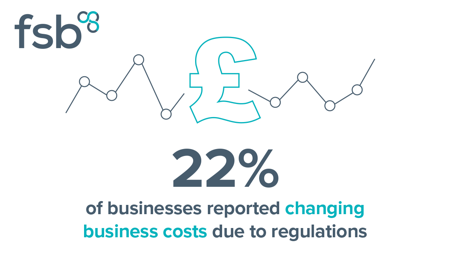
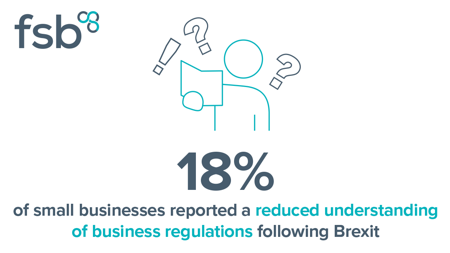
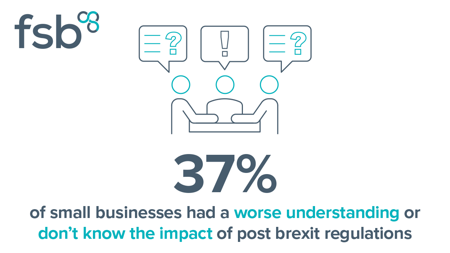
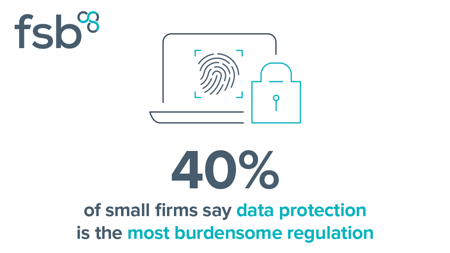
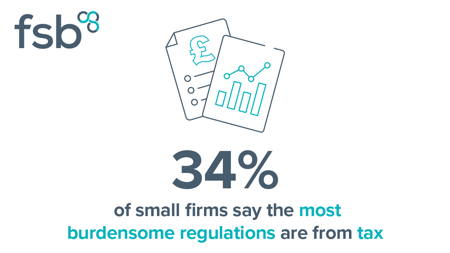
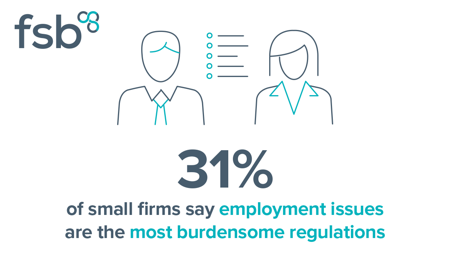

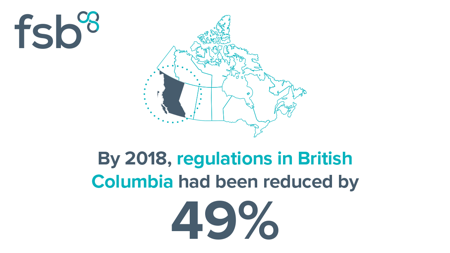
Recommendations
In line with the British Columbia Model, the UK should set a target of reducing regulatory requirements by one-third in three years.
Regulatory requirements resulting from legislation, administrative rules, guidance, policies and regulatory practices should all be included in scope. The detailed principles of the British Columbia Model should be included in the UK’s domestic regulatory framework, and the success of the reform should be assessed by the number of regulatory requirements which have been repealed, with an emphasis on ensuring that regulatory requirements are proportionate to the size and complexity of a business.
Government Regulatory Reduction Pilot Scheme
MHCLG should support local government to develop a pilot scheme by which the principles of the British Columbia Model can be tested. Small businesses within the hospitality sector have been burdened by regulatory requirements, many of which have been relaxed as a result of the coronavirus. For instance, small businesses were exempted from having to obtain planning permission in order to operate a takeaway alongside the main business, this easement should be made permanent and there should be an automatic right to operate as a takeaway alongside a main business.
A Minister based in the Cabinet Office should be appointed to oversee the implementation of the British Columbia Model across all government departments and regulators.
Government departments and regulators should report to the Prime Minister and the overseeing Minister on a quarterly basis regarding their progress. Government should also formulate an advisory group, with business and regulatory experts, to assist with achieving its target. Small businesses, who often struggle the most with the burden of regulation, should be well represented on this advisory group.
A public central database of all regulatory requirements should be created, with a ‘league table’ regularly published showing departmental progress against the target.
The database should be manually updated by named responsible individuals within each department to allow regulatory bodies to develop a clear picture of the body of regulatory requirements which they
are responsible for. Once the target of one-third has been reached, Government should institute a ‘one-in, one-out’ rule going forward to maintain that success. Government should also build targets for better regulation into the statutory framework, including a checklist for the proposal of new regulations and a statutory obligation to consider alternatives to regulation where possible.
UK Government including MHCLG should seek to reform the culture of regulation within the UK towards simple regulations and regulatory requirements.
A consistent culture focused on good regulation within UK Government will underpin delivery of the one-third target, and maximise the associated benefits to business.
Click below to download the full report




